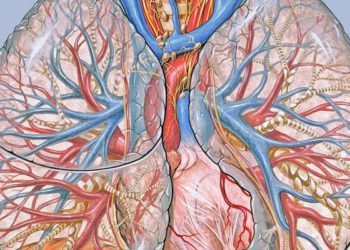Minimally invasive surgeries may improve outcomes for spontaneous hypertensive intracerebral hemorrhage
1. Treating intracerebral hemorrhage (ICH) with endoscopic evacuation or stereotactic aspiration results in more favourable outcomes
2. Stratifying outcomes by location of hemorrhage shows endoscopy and aspiration are preferred for supratentorial deep hemorrhages whereas no significant difference is seen in supratentorial lobar hemorrhages
Evidence Rating Level: 1 (Excellent)
Intracerebral hemorrhage (ICH) is the deadliest type of acute stroke. It is treated with small-bone flap craniotomy, endoscopic evacuation, or stereotactic aspiration. This trial aimed to determine which surgical method is most effective. Patient outcomes were measured using a modified Rankin scale (mRS) score. A favourable outcome was 0-2 (no symptoms to slight disability, unable to carry out all previous activities but able to care for own needs without assistance) at 6-month follow-up. The endoscopy group had the highest hematoma clearance rate (88.3%) followed by craniotomy (86.5%) and aspiration (60.3%) (p=0.000). Craniotomy had the largest intraoperative blood loss (268 mL, p=0.000) compared to endoscopy (88 mL) and aspiration (38 mL). Craniotomy also resulted in the most stroke-related pneumonia at 31.9%. Endoscopy had 22.6% and aspiration had 18.3% (p=0.002). Intracranial infection showed no significant difference. At the 6-month follow-up, the proportion of patients with favourable outcomes was higher in the endoscopy group and aspiration group relative to the craniotomy group (p=0.017). Similarly, mRS scores of 0-2 were achieved in 33.3% of the endoscopy group, 32.7% of the aspiration group but only 22.2% of the craniotomy group. Comparing outcomes by the location of the hemorrhage showed supratentorial deep hemorrhages of the basal ganglia and/or thalamus showed better outcomes when treated with endoscopic surgery or stereotactic aspiration (p=0.001). Supratentorial lobar hemorrhages showed no significant difference between groups but had a slightly higher rate of favourable outcomes when treated with craniotomy.
Click to read the study in BMC Medicine
Image: PD
©2024 2 Minute Medicine, Inc. All rights reserved. No works may be reproduced without expressed written consent from 2 Minute Medicine, Inc. Inquire about licensing here. No article should be construed as medical advice and is not intended as such by the authors or by 2 Minute Medicine, Inc.







